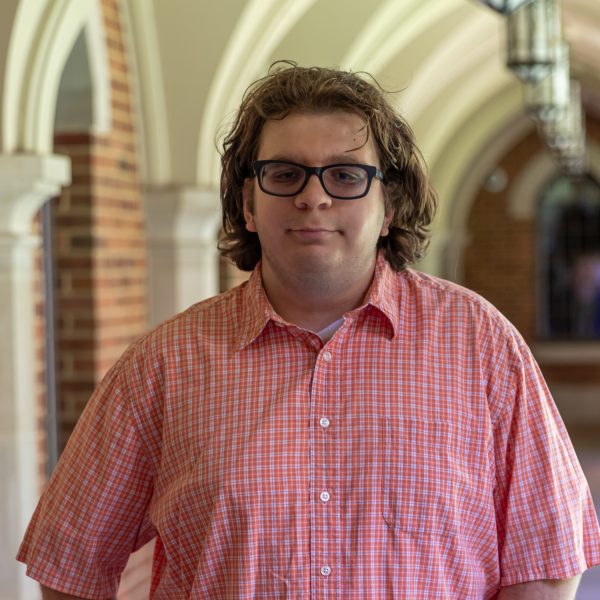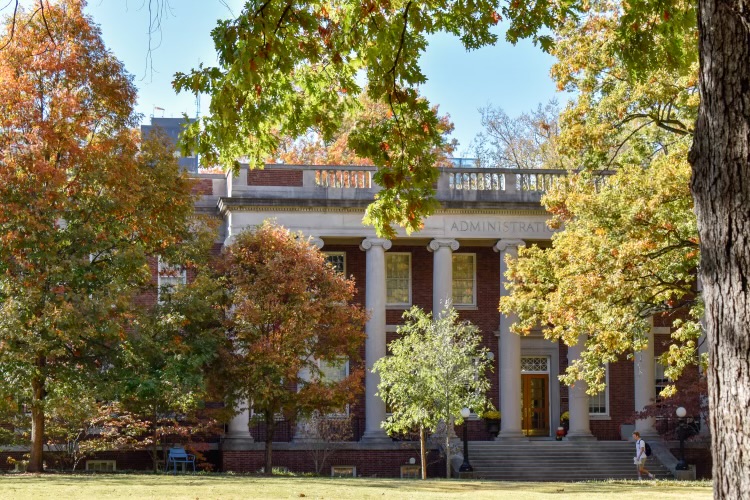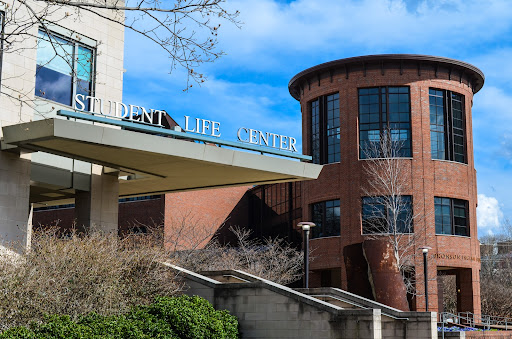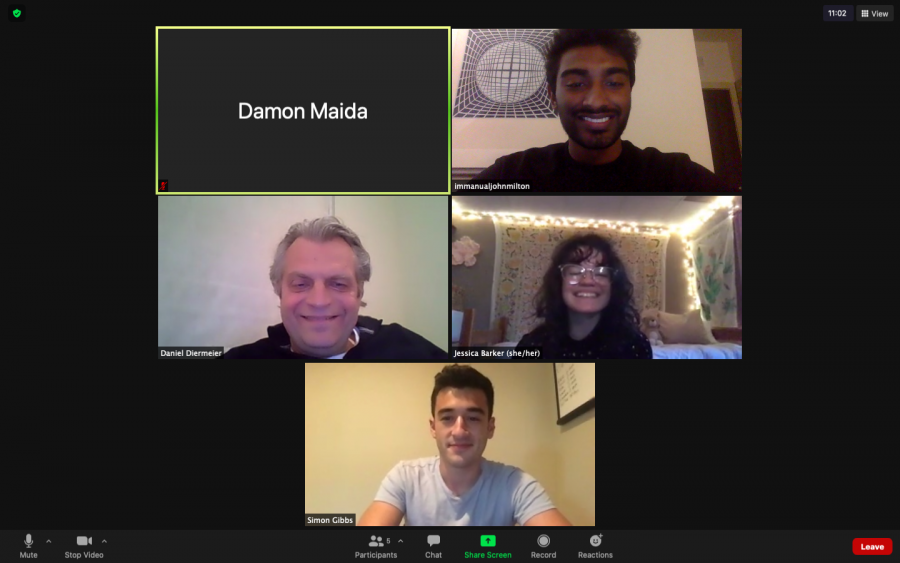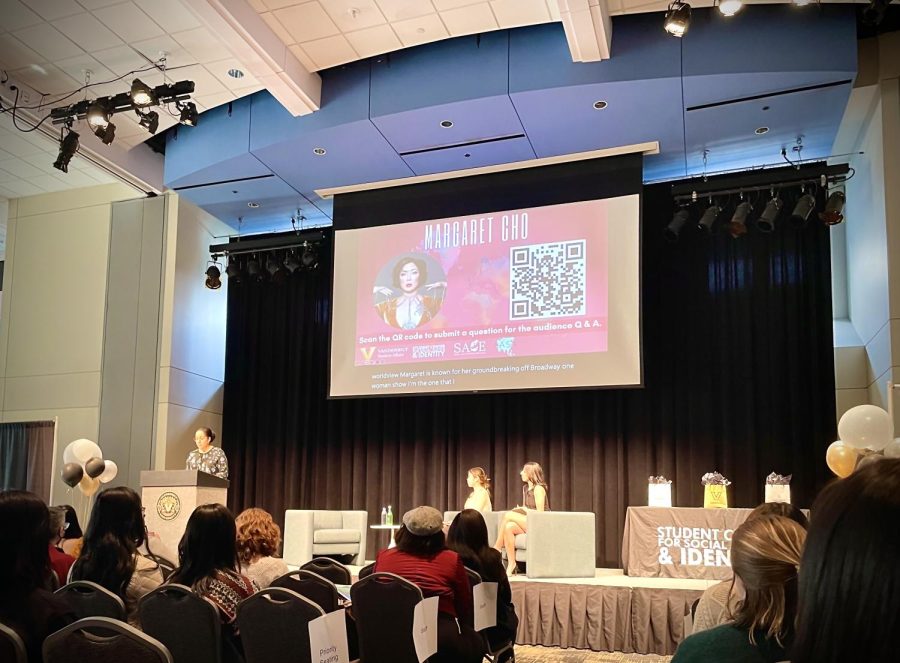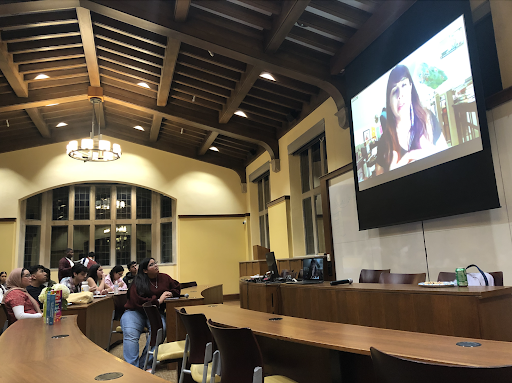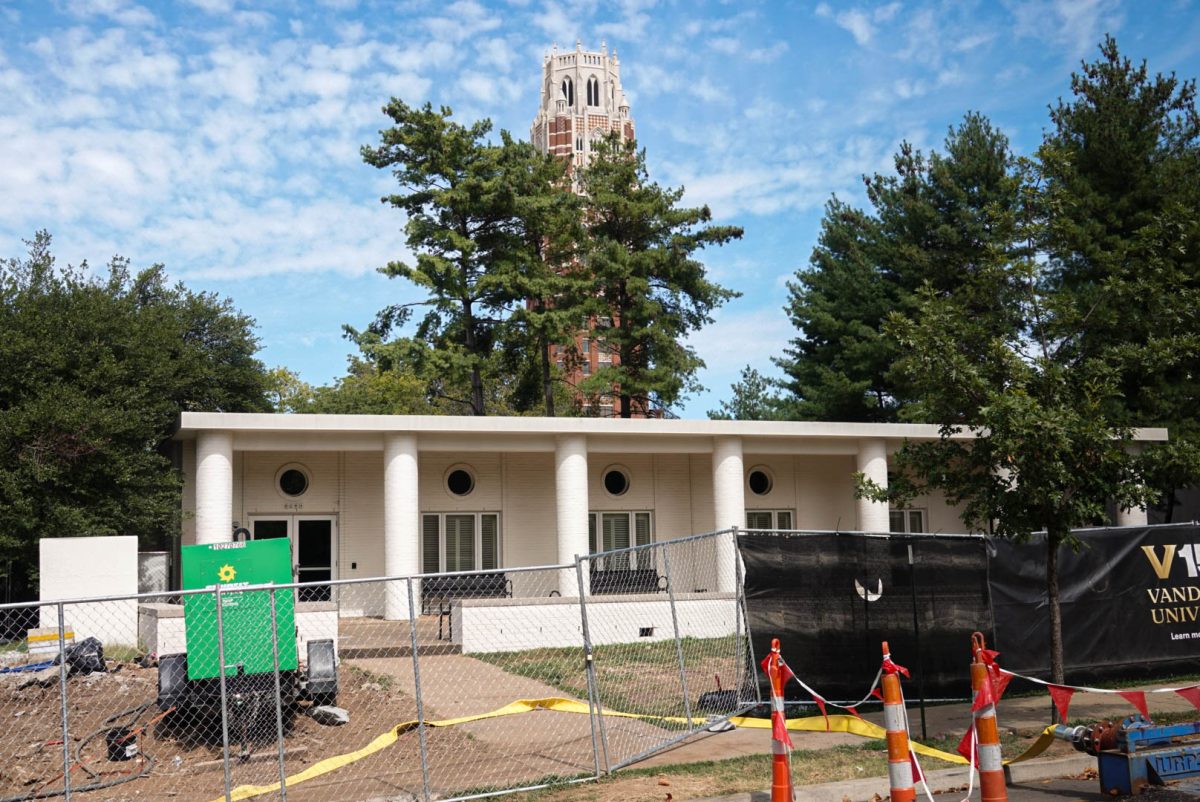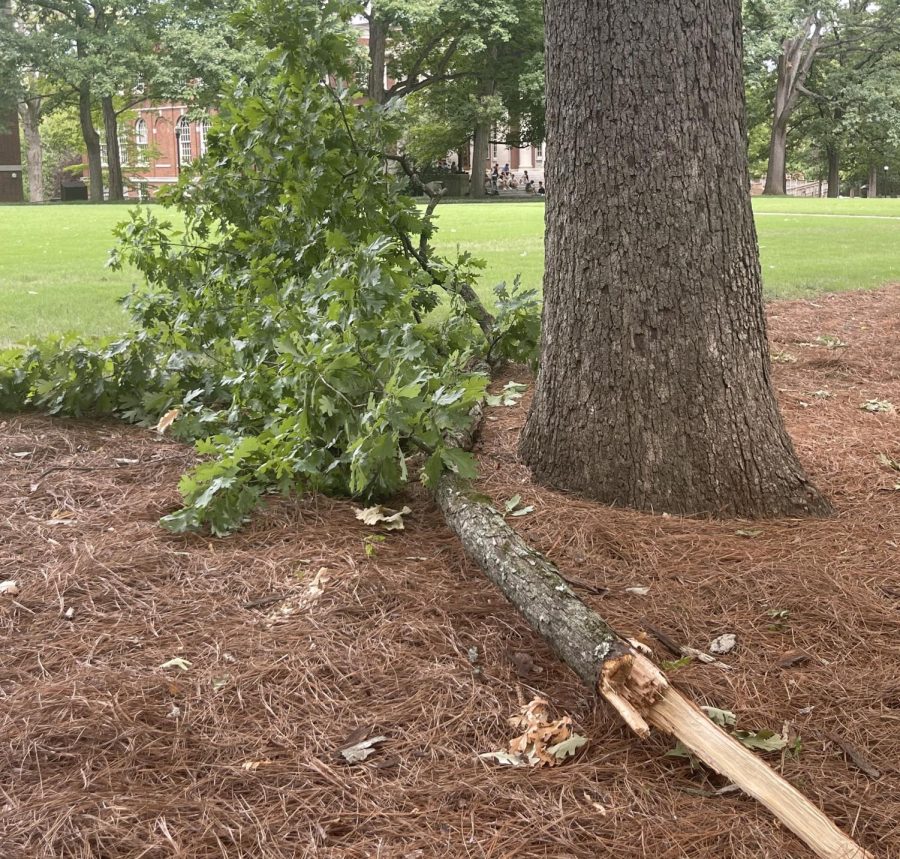CORRECTION: This piece was corrected on Dec. 7 at 12:10 p.m. CST to include that all of Vanderbilt’s identity centers — not solely the SCSJI — have moved to Student Affairs. Further, Dr. Ashley Brown was recently promoted, changing her title from SCSJI Director to Senior Director for Equity, Diversity, Inclusion and Belonging and SCSJI.
Vanderbilt’s equity, diversity, inclusion and belonging efforts are being decentralized from the former Office of Equity, Diversity and Inclusion in favor of a “distributed, collaborative” model. This process began this summer, and a university-wide EDIB collaborative will be launched in January.
Vice Provost of Student Affairs and Dean of Students G.L. Black said the decentralization of EDIB initiatives is not tied to political limitations on EDI in Tennessee or the Supreme Court’s overturning of affirmative action, calling the timing “coincidental.”
“We’re very much committed to equity, diversity, inclusion and belonging, and it’s really a core value. We want to continue the good work that [has] been done and enhance it. We want and need every voice to be at the table,” Black said. “We know that this is really fundamental to educating our students and carrying out the best scholarship and inquiry that we can as an institution.”
Vice Provost for Undergraduate Education Dr. Tiffiny Tung added that the university has been “proactive” and “mindful” of the repercussions of the SCOTUS decision, citing the decision to expand its partnership with the Posse Foundation and the new Education Enhancement Fund for Immersion Vanderbilt.
According to Black, the funding for these structural EDIB changes came from the reallocation of funding for the former Office of EDI, as well as through fundraising efforts to support specific initiatives, such as Immersion Vanderbilt.
Motivations for decentralization
Decentralization efforts began in July 2023, which coincided with Dr. André Churchwell’s transition from vice chancellor for outreach, inclusion and belonging to Senior Advisor on Inclusion and Community Outreach in the Office of the Chancellor.
Black said that Churchwell’s move offered the university an opportunity to consider “pathways forward” for EDIB.
“I think about it [EDIB] a little bit in terms of our approach to health and well-being, which is Vanderbilt as a community of care. And everyone has a role to play,” Black said. “Similarly, what we’ve tried to do with equity, diversity and inclusion is distribute leaders and services across a lot of different areas within the university to create that sort of layered collaborative approach.”
Under the new structure, Vanderbilt’s identity centers — which include the Bishop Joseph Johnson Black Cultural Center, Center for Spiritual and Religious Life, Margaret Cuninggim Women’s Center, Office of LGBTQI+ Life and Student Center for Social Justice and Identity — are housed under Student Affairs, as opposed to the Office of EDI. Black said that Student Affairs has collaborated frequently with these identity centers in the past and believes this move will streamline communications and initiatives between the two.
“Really looking at allocation of resources and de-duplication of work — which sometimes we’ve found in the past has been a challenge to know who’s working on various initiatives and how those connect — also ties into wanting to create this in a more collaborative, across-campus atmosphere, rather than a single standing EDI structure,” Black said.
He emphasized that the structure is intended to reflect campus needs. Black noted that the identity centers used to be part of Student Affairs until they moved to the Office for Inclusive Excellence within the Office of the Provost in 2019 and then to the Office of EDI in 2021.
“What we’re looking at is what some of the benefits of [the distributed model] may be in terms of positioning people closer to the ground, where the work is happening and the interactions with the constituencies on campus are taking place,” Black said.
EDIB collaborative
To unite decentralized EDIB efforts across the university, Associate Dean of EDI Dr. Rosevelt Noble, also faculty head of Stambaugh House and former director of the BCC, said the university is planning an “EDIB collaborative.” The goal of this working group is to unite people from different campus sectors to strategize, discuss best practices and remain informed about ongoing EDIB initiatives.
“The three lanes that we have in terms of constituencies are students, faculty and staff. Myself and Dr. [Ashley] Brown are crowded in the student lane. We have folks on the faculty lane, folks in the staff lane, and as we develop our respective plans for our constituents around EDI, we realize that there’s overlap,” Noble said. “We haven’t set the cadence for how frequently we’ll meet yet.”
Noble said the collaborative will begin in January 2024 with a “Student Affairs EDIB Kickoff.”
Black added that the collaborative will include EDIB training for involved faculty, though the university does not mandate such training for existing faculty. Tung declined to comment on whether the university is legally restricted in enforcing EDI training but shared that such training is included in mandatory orientation for new faculty.
Tung added that, in the College of Arts and Science, faculty search committees also undergo inclusive search training to limit unconscious bias in hiring for both tenure-track and continuing-track faculty. A university representative confirmed to The Hustler that this training, titled “Group Decision Making and Inclusive Faculty Search,” is similarly offered in the Blair School of Music, School of Engineering and Peabody College.
“These workshops have been facilitated by Senior Director for Faculty Advancement Jermaine Soto for the past three years and the trainings, while not required, have become something that all deans have built into the faculty search experience. The training is required for all dean search committees by Vice Provost Tracey George, who oversees dean searches,” the representative said.
In June 2023, Vanderbilt received $17 million from the National Institutes of Health to increase EDIB within biomedical research faculty at the university and VUMC.
New student-facing EDIB positions and initiatives
Noble shared that Student Affairs recently filled two EDIB positions: a new communications role and a data assessment position. The communications role involves overseeing an EDI newsletter, while the data employee will help track and assess how well Student Affairs is meeting student needs and fostering a sense of belonging.
“Students will have a corner [in the newsletter] where they can promote events and activities that are EDI-focused,” Noble said. “The comms person will help us with our general communications, as well as promoting a lot of the events and programs that happen out of our identity centers…which will give them a bigger platform to be celebrated and told as part of Vanderbilt’s story.”
Senior Director for EDIB and SCSJI Dr. Ashley Brown added that SCSJI has restructured its leadership to more fully account for the diverse range of student identities on campus. These efforts include hiring a second SCSJI assistant director and adding a third program coordinator position. According to Brown, both assistant directors are assisting with large-scale SCSJI initiatives, while also focusing on the needs of first-generation students, active military and veteran students, low-income students and students with disabilities. The three focus populations of the program coordinators are Latinx students; Native American, Indigenous and international students; and APIDA students.
“I wanted to make sure that we were recruiting folks who had experience, content specialists, and just understood the work is specific to populations,” Brown said. “While they’re going to continue to work with all students, they get to really focus in and help us build initiatives centralized to each of these populations.”
SCSJI will also take over responsibility for the graduate recognition ceremonies for Native American and Indigenous, international, Latinx and APIDA students in the spring. According to Brown, these will be redesigned and moved closer to the date of university-wide commencement to allow family members to attend both in person.
Brown said her team is currently creating a “framework” that will lend itself to student input next semester.
“Specifically within SCSJI, as we expand, we’re talking about ‘Do we create ambassadorships where students drive the programming in our office? Do we create [SCSJI] internships and allow the interns to lead the conversations of what this will look like?’” Brown said.
Further, hiring efforts are ongoing for new directors of the BCC and Office of LGBTQI Life. Similarly, Tung said her department is hiring a new senior director for academic opportunity and belonging.
“Now we have a person who’s really focused and dedicated on these academic components like scholarships and grant opportunities, engaging all of our students in research and internships and international travel,” Tung said.
Black emphasized that the decentralization efforts are aimed at providing students with the most positive, supportive and enriching Vanderbilt experience possible.
“I started having lunches with small groups of students to get feedback not just on EDI-related topics but also broadly about the student experience because, obviously, our goal is to have the best student experience that we can at Vanderbilt and promote belonging for all our students,” Black said.
New faculty- and staff-oriented EDIB positions
Amid Churchwell’s decision to step down as vice chancellor, Black said a search is ongoing for a new vice chancellor for people, culture and belonging whose role will center on the staff experience. Other EDIB positions will also be added to Faculty Affairs and Offices of the Deans.
“One of the main drivers for the creation of that role is really to look holistically at the staff experience and pull a lot of units together that were in disparate areas of the university to create a comprehensive staff experience, one element of which will be around EDIB for staff,” Black said.
Staff EDI initiatives are currently housed under Human Resources, which Noble said includes existing employee affinity groups. He serves as president of the EAG for Black faculty and staff and called these groups “valuable,” expressing hope that they will be further strengthened by the hiring of the new vice chancellor.
“We all talk about best practices around how we meet the needs of our constituents and various things of that nature. Yesterday, I was on a panel about how you survive and thrive as a marginalized employee at Vanderbilt,” Noble said. “There [are] programs that happen in these EAGs that help to meet the needs of our staff as well, and this is all in the absence of that new person on board — so that will only get stronger.”
Decentralization effects
Brown praised the new model for having fewer barriers and offering students a more consistent experience.
“I am already with a number of student orgs that weren’t part of our office that have joined our office. Because they’re working with staff [who] are familiar with their identities…and familiar with student org processes, I don’t have to send them to five different places to get an answer,” Brown said. “I now can walk across the hall because the group is right here and part of Student Affairs.”
Echoing Noble and Brown, Tung said she has been able to more easily coordinate events and programs to support students under the new model that would have been more complicated or time-consuming under the former structure.
“Study abroad came up as an issue. Because study abroad is literally my portfolio, I could get on the phone and say, ‘we need to put together a special study abroad session for Posse Scholars and first-gen [students],’” Tung said. “We did that, and now we have [an] increase in the number of students doing study abroad.”
Tung emphasized that these meetings with the Global Education Office and Office of Financial Aid specifically encouraged more Posse Scholars to enroll in study abroad who previously were unsure, though study abroad numbers have also generally risen across the university.
Noble identified mental health as one of the areas in which students have indicated they need more support and believes the new EDIB model will be beneficial in addressing this need.
“Coming out of the line of being a director of an identity center, I would see and know about the emotional and mental struggles our students went through,” Noble said. “Whereas now in this new model…we have the ability to work at the highest level with the leadership in these various lanes.”
Specifically, Noble cited the Student Care Network’s upcoming faculty retreat that will include four dedicated hours of discussing how to best incorporate EDI practices within their services.














